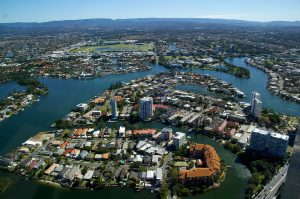
We hope that somehow, the water that flows into our homes will take care of itself. But just as it takes a village to raise a child, it takes a community to care for water. Here are ten tips for keeping waterways clean.
The volumes of storm water going into our waterways is Huge. Sadly, it collects a lot of waste, chemicals, and litter as a result of human activity. This water flows directly into the ecosystem including our streams, lakes and rivers without any filtration? You can we help to ensure this water is relatively clean to help in preserving the biodiversity that it supports.
10 Tips for keeping waterways clean
- 1. Clear the plant rubbish: Even rubbish such as your grass and leaves can have an adverse effect on waterways. So,when they build up and begin decomposing, they will absorb the oxygen and decimate aquatic life. The answer is to sweep these up and compost them. By doing this ,you not only help keep our waterways clean, but magically develop quality garden soil as well.
- 2. Bin the cigarettes butts: Millions of cigarette butts are dropped haphazardly by smokers every year. These are easily carried by storm water into the waterways. As a result, they not only pollute but they kill the aquatic life. All cigarette butts should be placed in the bin and disposed of properly.
- 3. Clean up after your dog’s. It is essential to clean up after our dogs, at home and in public places. In most places now, failure to collect droppings in public areas can lead to fines. The reason is simple, if you ignore dog droppings, they are swept into the water catchments. . Rather than ignoring them, just pick these up and place them in the garbage bins.
- 4.Wash your vehicles on the lawns: Care should be taken when washing your car. Avoid doing it on the driveways and pavements as the water easily flows to the waterways. Also, try to use environmentally friendly detergents when washing your car.
- 5. Proper disposal of paint: Do not clean paint brushes or rollers where the run-off goes into your drains. Paint is chemically laden, and if it flows into the waterways it will poison aquatic life. It is safer to wash them off on the grass or lawn.
- 6. Minimize use of chemicals: Do you use chemicals such as pesticides and detergents a lot in your home or business? Try to minimize that or simply use chemicals which are biodegradable and have been certified safe for the environment.
- 7. Responsible use of motorboats or yachts: When using motorboats or yachts in the waterways, it is important to be aware of your responsibility to keep the waterways clean.
- 8. Don’t over water your lawn: If you are over watering your lawns or gardens will release the pesticides and fertilizers from the ground into the waterways which can have adverse effects. Use natural fertilizers, mulch well and do not over water.
- 9. Avoid littering:- Litter, including packaging, cans, bottles etc can have adverse effect on the waterways and must be disposed of properly.
- 10. Use grey water properly: Be mindful of the chemicals and paints that could potentially be in your grey water. Where possible the installation of a grey water recycling system will not only help waterways. It will boost your gardens, reduce overall water usage and
As more of us adopt these simple and sustainable steps daily, the health of our waterways is improved. As a result, we, and the biodiversity around us that we depend on, all benefit from a healthier environment.
